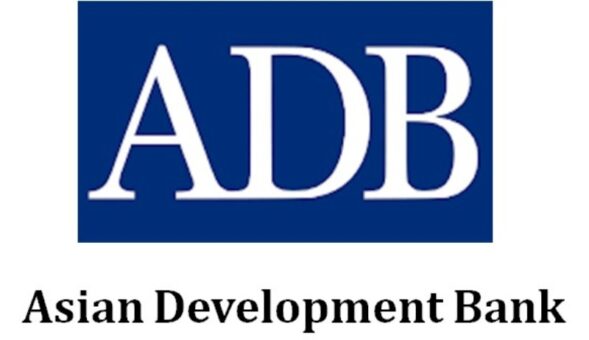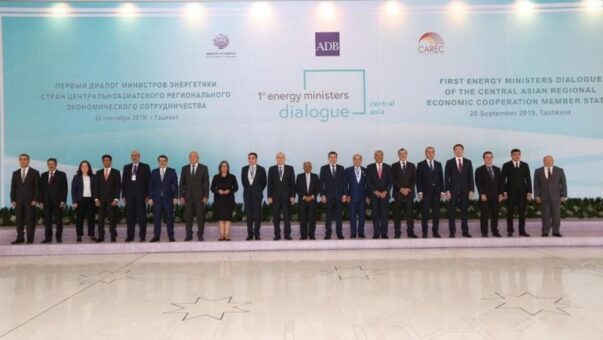TASHKENT, UZBEKISTAN: Nine countries in Central and West Asia, including Pakistan, on Friday signed a historic declaration that will accelerate cross-border cooperation on energy issues and move the region a step closer to the creation of a regional energy market, said a statement issued by Asian Development Bank (ADB).
Energy ministers and leaders from Afghanistan, Azerbaijan, Georgia, Kazakhstan, the Kyrgyz Republic, Mongolia, Pakistan, Tajikistan, and Uzbekistan signed the 10-point declaration at the end of the Central Asia Regional Economic Cooperation (CAREC) Energy Ministers’ Dialogue held in Tashkent.
The meeting marks the first time energy ministers from Central and West Asia have come together to discuss common regional energy challenges. Uzbekistan’s Minister for Energy, Alisher Sultanov, opened the meeting on behalf of the Prime Minister of Uzbekistan Abdulla Aripov.
The opening address was delivered by Asian Development Bank (ADB) Vice-President for Private Sector Operations and Public–Private Partnerships Mr. Diwakar Gupta. The energy minister from Turkey, Fatih Dönmez, attended the meeting as an observer.
The declaration sets the region on a faster reform path toward more liberal energy markets with greater private sector participation and investment, increased power connections and exchanges between countries, and a strong commitment to tap renewable energy sources and clean technologies.
The group also endorsed a new CAREC Energy Strategy for the next 10 years that will provide the roadmap to reach the region’s goal of a secure energy future.
“This is a historic achievement and an important commitment,” said Gupta. “The energy sector drives economic growth in the region, so this unprecedented gathering of energy leaders is very important. Today, they have strengthened their commitment to work together to deliver an electricity supply for the region that is reliable and affordable, develop modern energy markets, and embrace clean energy as a more efficient, sustainable source of power.”
The meeting of ministers has come at a critical time for the region as its energy sector faces a number of challenges. CAREC countries are rich in natural resources, but uneven distribution of these resources—compounded by inadequate infrastructure and inefficient state-owned energy utilities—means some countries continue to face power shortages. To keep pace with the region’s economic growth and an increasing demand for power, the region will need to double its current power system capacity by 2030. The capacity expansion will require sizable investments, estimated to be about $400 billion in cumulative investments up to 2030.
Regional energy cooperation, modern energy markets, and a significant increase in private investment in the energy sector is an opportunity to overcome these challenges and to create a stable supply of power for domestic use and for export to attractive energy markets in the People’s Republic of China (PRC), Pakistan, and India, along with new strategic transit opportunities for oil and gas through Turkey and Georgia.
Unlocking private sector participation and investments is key to meeting the region’s significant energy infrastructure needs. The declaration committed the region to policy reforms in creating a more conducive business environment for attracting private investments across the region.
“The region cannot achieve the level of investment needed without large private investments,” said ADB Director General for Central and West Asia Werner Liepach. “Private investments demand predictive policies, stable regulations, transparency, and good governance. I am deeply impressed by the CAREC countries’ strong commitments to reforms, which is the only way towards a more reliable, affordable, modern, and sustainable energy future.”
Following the Ministerial Dialogue, officials attended the opening of the 4th CAREC Energy Investment Forum. The 2-day forum aims to unlock and guide private investment in the region’s energy sector and is attended by a mix of energy leaders, policy makers, project developers, technology providers, investors, international financial institutions, members of the diplomatic community, academia, and young entrepreneurs and students.
ADB is the secretariat of the CAREC Program. Since 2001, the CAREC Program has financed 196 regional projects worth $34.5 billion in the areas of transport, energy, and trade in its member countries. Over a third of this amount, or $12.8 billion, has been financed by ADB; $13.8 billion by other development partners such as the World Bank, the Islamic Development Bank, and the European Bank for Reconstruction and Development; and $7.9 billion from CAREC governments. The 11 members of CAREC are Afghanistan, Azerbaijan, the PRC, Georgia, Kazakhstan, the Kyrgyz Republic, Mongolia, Pakistan, Tajikistan, Turkmenistan, and Uzbekistan.
ADB is committed to achieving a prosperous, inclusive, resilient, and sustainable Asia and the Pacific, while sustaining its efforts to eradicate extreme poverty. In 2018, it made commitments of new loans and grants amounting to $21.6 billion. Established in 1966, it is owned by 68 members—49 from the region.





